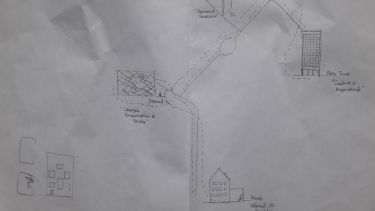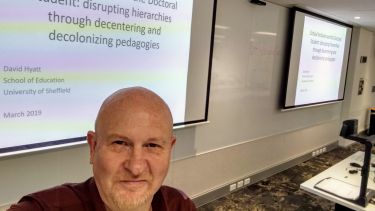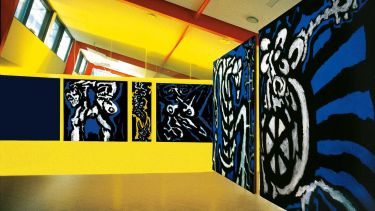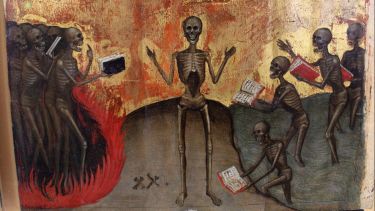Pedagogy and Policy Research projects

The overarching focus of the work of this cluster is the interrelationship between pedagogy and policy, an entanglement that is always complex and often fraught as policy frameworks both construct and constrain pedagogical possibilities. The emphasis is very much placed on situated research, grounded in our practice as educators and the lived experiences of all involved in the manifold shifting interactions that make up what we call “pedagogy”. Seeking in our work to synthesise theory, analysis and practice, and animated by a deep-seated concern to address processes of marginalisation and minoritisation, we engage in research across a variety of settings, from early years to higher education, from social movement activism to representations in literature and film. While driven by a social justice ethos, we make no glib assumptions about the liberatory power of pedagogy and are as critical of its limitations as we are advocates for its possibilities.
TIM HERRICK
Student Observation of Teaching
I founded and co-lead this scheme, which supports students and staff to have critical conversations about learning and teaching, across disciplinary boundaries, and grounded in specific observations of teaching practice. The scheme has been running since 2017, and has involved at least 75 staff and 175 students, in an attempt to enhance the depth and breadth of conversations about teaching quality within the institution.
https://www.sheffield.ac.uk/ssid/301/soot
Student learning spaces
In a collaboration with colleagues from across the university led by Andrew Cox in the iSchool, I am involved with ongoing explorations of how students experience the university campus as places for learning, especially where these are different from how the university imagines, plans, and manages those spaces. This work contributes to the University's Digital Experience component of the Education strategy and is directly informing policy and practices for new learning spaces in the institution.
Researching, Advancing, and Inspiring Student Engagement (RAISE)
On Wednesday 3rd May, around 50 colleagues from across the UK gathered in Sheffield for a meeting of the Partnership special interest group associated with RAISE, the network for Researching, Advancing, and Inspiring Student Engagement. It was a chance to discuss in particular how to recognise and reward student contributions to partnership work - through payment or bursaries, professional accreditation, module credit, or a combination of these and more. The challenge is that research evidence for partnership being beneficial to students is strong (e.g. Mercer-Mapstone et al., 2017), but activities are resource-intensive, and there are persistent difficulties in scaling up, despite at least a decade of strategic focus (e.g. Harrington, Flint, and Healey, 2014).
The event didn’t necessarily produce any new answers to these intractable questions, but they did offer an opportunity to share questions, suggestions, and helpful practices around them. Through two keynotes (both videoed) and a dozen presentations (available online), staff and student participants were able to share their experiences; and it was perhaps the testimony from the latter group that was most powerful. What emerged from the day was that student contributions need to be recognised in a diversity of ways, all underpinned by shared values - such as reciprocity, authenticity, and inclusivity - that ensure a solid relationship from which to start. The success of any project is influenced by this starting point and a shared commitment to these values as the work continues.
The organisers would like to thank the student panel members who helped design the programme and chair sessions, RAISE for the practical support, and the School of Education and the Pedagogy and Policy Cluster for providing the funding.
DAVID HYATT
Decentering and decolonising doctoral pedagogies
This project aims to trouble and reconfigure the traditional relationship between a doctoral student and ‘supervisor’ in terms of its power differential, often characterised as an asymmetric, hierarchical expert/novice dyad, which can trap supervisory relationships in a ‘transmission’ or ‘training’ mode, with students receiving ‘instruction’ from ‘experts’. It considers how we can rethink, disrupt and disorient dominant conceptions of doctoral pedagogy, to build a more collaborative, collegial ‘decentred’ approach to supervisory work. This work, drawing on interdisciplinary theoretical and conceptual resources from cultural sociology, anthropology, organisational studies and education, argues the liminal spaces students pass through offer opportunities for relational, productive and decentred pedagogies, where supervisors/advisors construct ways of valuing their students’ expertise, and facilitate a critical inclusion within the academic discourse community. Decentred doctoral pedagogies aim to develop repertoires of successful members of the discourse community – mirroring professional ways of being, and doing research work. A student’s doctoral repertoire will be indexical and biographical, grounded in the plethora of networks, communities and resources they learn through, and forming a distributed patchwork of competencies, dispositions and values. This project is developing out of collaborations with Australian colleagues (Deakin University, Victoria University) and currently we are working towards a book proposal ‘Creative and Innovative Doctoral Pedagogies’.
Publications
The most current paper on this work can be found here.
DARREN WEBB
Utopia in Sheffield?
This is an ongoing project in and through which I try to enact and embody some of the things I write about in my formal research. The aim of the project is to work with local activists, campaigners, community groups and workers to collaboratively and iteratively build a grass-roots utopia around which we can mobilise. My involvement in the project is as a worker with particular knowledge and skills to offer. At no point has the project sought support or legitimacy from the university.
Publications
The initial call for involvement in the project can be found here. I wrote some early reflections for openDemocracy here. More formal reflections on the need to abandon the university and work in spaces of resistance outside it can be found here:
Webb D (2018) Bolt-holes and breathing spaces in the system: On forms of academic resistance (or, can the university be a site of utopian possibility?). Review of Education, Pedagogy and Cultural Studies 40(2), 96-118.
Pedagogies of Hope
This is a long-term project to which I’m heavily committed politically. Working with a range of radical teacher and democratic educator groups, the aim is to draw on some of the stuff I’ve written about “pedagogies of hope” and “utopian pedagogy” and develop a live and interactive set of pedagogical resources which operate within, against and beyond: within the constraints of contemporary schooling but against the oppressive, alienating, degrading, exploitative system within which education is embedded and pointing beyond society-as-it-is towards society as it could be.
Publications
Webb D (forthcoming) Hope and the utopian impulse. In N. Snow (ed) Hope. Oxford: Oxford University Press.
Webb D. (2019) Education and the construction of hope. In R. Green (ed) Theories of Hope: Exploring Alternative Affective Dimensions of Human Experience. Lanham MD: Lexington, 131-154.
Webb D. (2017) Educational archaeology and the practice of utopian pedagogy. Pedagogy, Culture and Society 25(4), 551-566.
Webb D (2013) Pedagogies of hope. Studies in the Philosophy of Education 32(4), 397-414.
JAMAL LAHMAR
Critical Statistical Literacy Education
In collaboration with colleagues in The School of Journalism and The Medical School, I am involved in the development of statistical methods and quantitative literacy teaching for researchers and aspiring professionals. Our teaching and scholarship draws on an understanding of the interplay between pedagogy and policy throughout levels of education as strong formative influences on personal epistemologies, providing insights into conventional wisdoms and rhetoric surrounding numerical measurement, statistical analysis and quantitative reasoning.
Publications
The most current paper on this work can be found here.
ANSGAR ALLEN
Interrogating education through fiction
This is an ongoing project in which educational ideas are encountered and explored in the contexts of theoretically driven literary fiction. The object of critique is typically at the intersection of pedagogy (the teaching of dependent personalities) and andragogy (the self-cultivation of adults in educated society).
These fictions include a foray into the darker side of educational relations in The Sick List (2021, Boiler House Press), pursuit of the idea that education might function as an intoxicant in The Wake and the Manuscript (2022, Anti-Oedipus Press), an exploration of the continued influence of priestly ideas in secular contexts in Black Vellum (2023, Schism2), and interrogation of some of the institutions that anchor educated culture, such as museums in Plague Theatre (2022, Equus Press), and the institution of the library in The Sick List. Other texts include a re-enactment of the destruction of humanist culture in Burton's Anatomy (2022, Schism Neuronics), a satire in part of the promise of liberation by reading in The Reading Room (2021, Schism Neuronics), and an exploration of the limits of research in the dystopian novella Wretch (2020, Schism Neuronics).
ALISON GRASMEDER
Innovating Racial Literacy Teaching and Learning for Schools with a focus on Initial Teacher Education and Geography
I am working with Dr Christine Winter and Dr Yinka Olusoga on a project that aims to raise awareness of racial literacy and to address issues of racism underpinning whole school geography. We hope to be able to make some recommendations to support student teachers and their ITE mentors to develop anti-racist teaching resources for geography classrooms which will benefit school geography pupils.
Research has been qualitative, through the use of interviews, yielding very rich data. We have analysed some of the published resources used in schools, such as examination questions and textbooks. We have also created a resource to support student teachers and their mentors in exploring issues of racial literacy in the classroom.
In analysing our data we have adopted a thematic analysis to review the transcripts from the interviews of student teachers and ITE mentors. We have used a form of discourse analysis, the discourse historical approach, to examine some of the published resources used in schools.
We are beginning to disseminate preliminary findings, initially through three conferences: the APSE MA Conference at the University of Sheffield (January 2023); the Geography Teacher Educators’ Conference online (January 2023) and the Geographical Association Conference at Sheffield Hallam University (April 2023).







